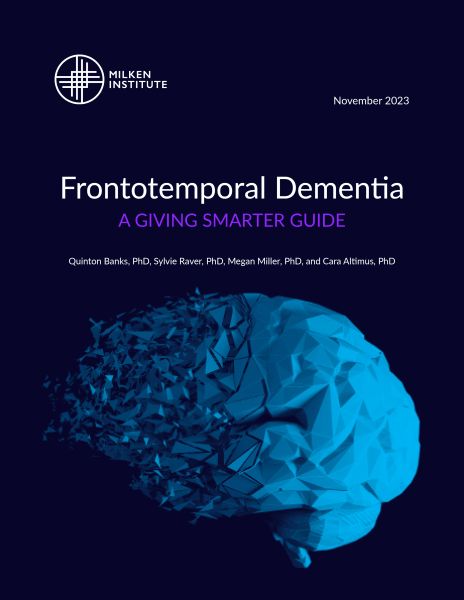
Frontotemporal Dementia: A Giving Smarter Guide
Frontotemporal dementia (FTD) refers to a family of neurodegenerative conditions that cause changes in behavior, mood, executive function, language, memory, and motor function. As many as 30,000 people are living with FTD in the United States, and estimates suggest that as many as 1.5 million people are living with it worldwide. However, FTD’s prevalence could be much higher as it is often misdiagnosed as a psychiatric or other neurodegenerative condition.
Navigating an FTD diagnosis presents a significant challenge for patients and their families. The average life expectancy for someone with FTD is only about 7.5 years after symptoms begin. The patient’s condition worsens over time as the brain’s frontal and temporal lobes deteriorate, and people living with FTD eventually need full-time care. Although drugs and other approaches can help manage FTD symptoms, no FTD-specific treatments are approved by the US Food and Drug Administration.
The Kissick Family Foundation partnered with MI Philanthropy’s Science and Health team in 2022 to analyze the funding landscape and summarize the current state of FTD research. The resulting Giving Smarter Guide reflects these findings and outlines opportunities for other strategic investments in this space.
If you would like to contribute in John Kissick's memory toward this partnership's work, please click here for more information.
Kissick Family Foundation Frontotemporal Dementia Grant Program
This Guide is being released in conjunction with a Request for Proposals (RFP) to fund research that accelerates basic and fundamental discoveries for sporadic FTD. This call for early-stage research projects seeks to expedite paths to therapeutic targets, eventually improving outcomes for people living with FTD. One-page letters of intent are being accepted through December 12, 2023. A webinar was held on November 29. A recording is available upon request.




